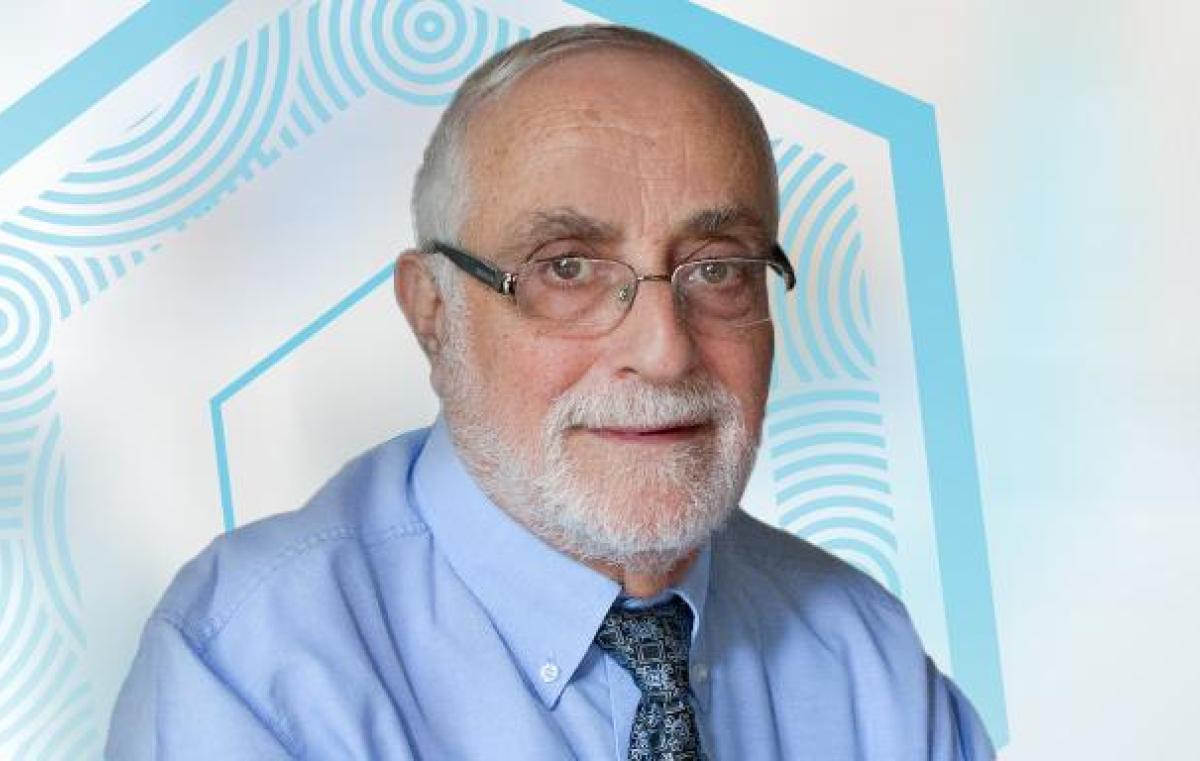Honorary Fellow
Institute of Physics elects Prof. Shlomo Havlin to receive its highest accolade

Prof. Shlomo Havlin, of the Department of Physics at Bar-Ilan University, has been elected an Institute of Physics 2021 Honorary Fellow for being among the pioneers of the field of Complex Networks and, in particular, the subfield of Interacting Networks based on statistical physics and percolation theory.
The Institute of Physics (IOP) is the professional body and learned society for physics, and the leading body for practicing physicists, in the UK and Ireland. An Honorary Fellowship is the highest accolade the IOP presents.
Prof. Havlin has been one of the leading pioneers in the rapidly-expanding multidisciplinary field of network science that emerged in 2000. He and his students developed the first percolation theory approach that proved that complex networks are in a new, previously unknown universality class. Their breakthrough discovery of the unusual robustness in these networks led to further discoveries by Havlin and others of many new laws governing the structure and function of complex networks and understanding open questions in many disciplines. These discoveries include, for example, the “ultra-small world” concept, showing that the diameter of modern networks of N nodes is dramatically smaller than the diameter of random (ER) networks and scales. Havlin's group extended these studies and developed an efficient immunization strategy for computer and population networks. This approach, called “the acquaintance immunization approach,” reduces the critical threshold of immunization by a factor of 3.
In 2005 Havlin and his colleagues developed a novel approach for studying self-similarity in networks. They found that fractal features exist in many complex networks, a result that led to a better understanding of the topology and function of complex networks in many disciplines. His book on Complex Networks (Cambridge University Press, 2010) with his former student Reuven Cohen (now Professor of Mathematics at Bar-Ilan University) is a classic textbook in the field of network science.
In 2010 Havlin pioneered and developed the rapidly-expanding subfield of interacting networks. He and his collaborators introduced and developed a mathematical framework based on percolation concepts for studying the resilience of “networks of networks”. Prior to 2010 there were no systematic tools for studying and understanding the properties of interacting networks. The general analytical results and Havlin’s discovery of a rich behavior that does not exist in single, isolated networks show that percolation theory of single networks is a specific limited case of the general category for networks of networks. The rich, novel phenomena found in networks of networks, including the strong influence of spatial embedding, a new “localized” type of failure, and the phase diagram when recovery of nodes is introduced are among the recent discoveries of Havlin’s group.
Recently, for the second year in a row, Havlin won the "Most Cited Researcher in Physics" award. In 2018 he was awarded the coveted Israel Prize in Physics.
An IOP Honorary Fellowship is presented to reflect an individual’s exceptional services to physics. Every member of the IOP’s celebrated community of Honorary Fellows has contributed significantly to the advancement of physics through a range of means, and serves as an ambassador for physics, physicists and the IOP.
Reacting to the news that he is an IOP Honorary Fellowship recipient, Prof. Havlin said, "I wish to thank my dear wife, Hava, and my large family for enabling me to spend much time and effort on scientific research, and particularly my hundreds of excellent students and young collaborators who stimulated me with outstanding ideas."
Congratulating this year’s new Honorary Fellows, Institute of Physics President Professor Sheila Rowan said: “Our Honorary Fellows represent an extraordinary group of physicists who have individually and collectively advanced our field. Each of them has made a significant positive difference to our understanding of, and pursuit of progress in, physics, and represents an example of what we as a community can achieve. On behalf of the Institute of Physics, I warmly congratulate all of them.”